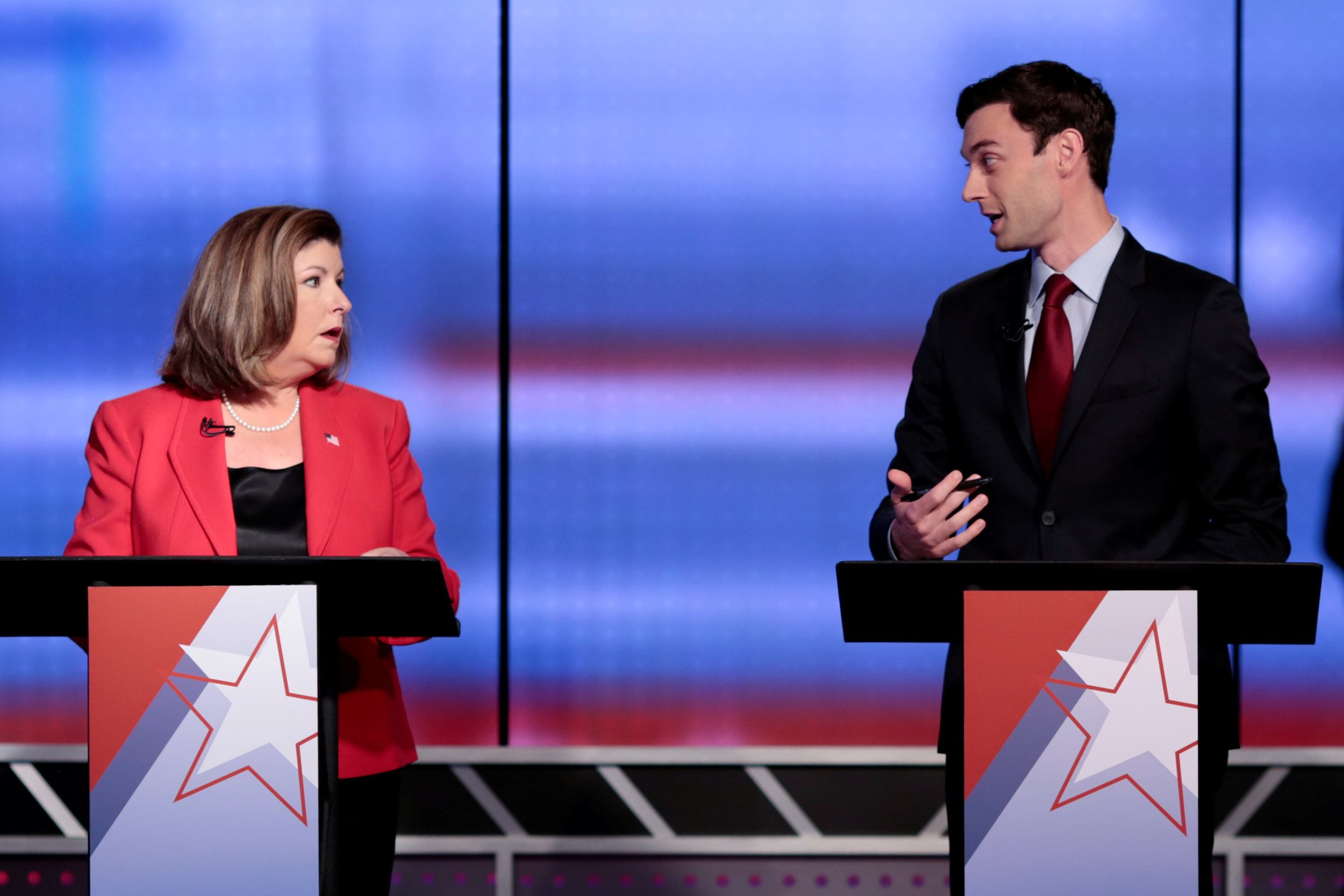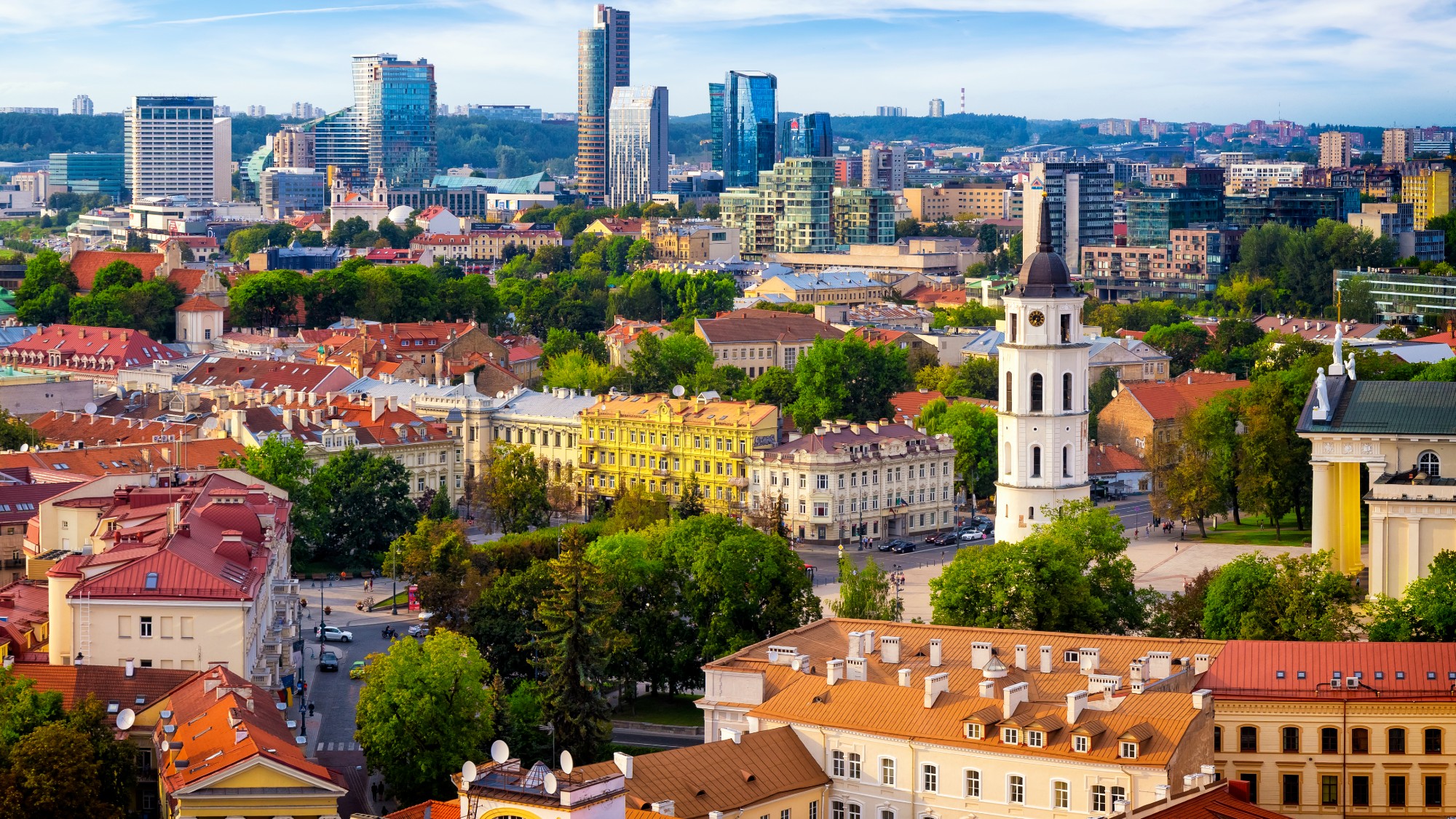Why the Georgia special election went national
This has nothing to do with Georgia


The special House election taking place in Georgia on Tuesday is, in a word, ridiculous.
The contest to see who will become 435th in seniority in Congress' lower chamber has attracted an enormous amount of media coverage, visits from one major political figure after another, and over $50 million, making it easily the most expensive House race in American history. Despite the efforts of the nation's hard-working hot-take writers, the outcome of this election will not determine the fate of either the Republican or Democratic parties, either this year, next year, or in 2020. Not that every vote in Congress doesn't matter, but the political upheavals of the next few years are unlikely to be changed in profound ways depending on whether Democrat Jon Ossoff or Republican Karen Handel prevails in what is sure to be a close election.
Nevertheless, the Georgia special election contains an important lesson. It's an exaggerated version of something we should expect and even embrace for 2018 and 2020: the nationalized local election. Yes, it's because there aren't hundreds of other races happening at the same time (though there's also a special election going on in South Carolina, which you've probably heard nothing about). That fact, and the closeness of the contest, has pulled attention and dollars to Georgia with a relentless gravitational tug. But even if we can't expect that every House race will rouse the whole country's interest, it's absolutely appropriate for voters to treat it like a referendum not only on President Trump, but on the national Democratic and Republican parties.
The Week
Escape your echo chamber. Get the facts behind the news, plus analysis from multiple perspectives.

Sign up for The Week's Free Newsletters
From our morning news briefing to a weekly Good News Newsletter, get the best of The Week delivered directly to your inbox.
From our morning news briefing to a weekly Good News Newsletter, get the best of The Week delivered directly to your inbox.
What's odd, though, is that neither candidate has seemed eager to do so. While Ossoff has certainly criticized Trump, he has also portrayed himself as anything but a partisan crusader. "Here's my plan," he says in one of his ads. "Cut the wasteful spending. Reduce the deficit so the economy can keep growing. And prioritize high-tech and bio-tech research to create more good jobs in metro Atlanta." It could have been spoken by a Democrat, a Republican, or a Whig.
And even though the district leans Republican, Karen Handel hasn't exactly been touting herself as a foot soldier in the Trump army. While Trump did a private fundraiser for her, she wants voters to know she's no rubber stamp. "My job is to represent the people of the 6th district," she says when asked about Trump. "I'm not an extension of the White House."
But here's the problem: If she wins, Handel will be an extension of the White House. Not completely, of course, but the overwhelming majority of the time. A vote for her is a vote for the GOP agenda: repealing the Affordable Care Act, cutting taxes for the wealthy, rolling back environmental protections, boosting military spending, and so on. Handel won't be representing the 6th district in some subtle and nuanced way that differs meaningfully from how a Republican member of Congress from Oregon or Ohio would. She'll be a reliably Republican vote, little more or less.
The same is true of Ossoff: For all his dull technocratic talk, the most important thing for voters to know about him is that he's a Democrat. Here's some bad news: Almost nothing he does will bring jobs to metro Atlanta, whether they're high-tech, low-tech, or no-tech. The days when a powerful congressman could guide billions of federal dollars to his district are largely behind us, and a freshman legislator has virtually no ability to do so. There may be some future moment at which Ossoff casts a vote that differs from most other Democrats, but as likely as not it'll be on a less important and visible issue. And to be honest, the 6th district isn't exactly crying out for economic transformation — it's already exceedingly well-educated and well-off.
A free daily email with the biggest news stories of the day – and the best features from TheWeek.com
That doesn't mean that members of Congress shouldn't represent the interests and ideology of their districts, but we tend to overstate what difference those local idiosyncrasies will make. Regular readers already know my contempt for the oft-spoken line that your party's candidate shares "[insert our home state here] values," while the other party's candidate is some kind of foreign interloper who doesn't understand our kind of folks. In the partisan time in which we live, it's less important than ever. As the two parties have grown increasingly unified internally and distinct from each other, your congressmember's particular talents and preferences have mattered less and less.
Which means you really are just voting for a party. If you live in Georgia's 6th district and you vote for Handel, you're voting to advance the Republican legislative agenda and stand behind President Trump. If you do it again next year, you'll be casting a vote to hold on to Republican control of the House — which means keeping that agenda going and forestalling the investigations that Democrats will mount against the administration if they acquire subpoena power. If you vote for Ossoff, you're choosing the opposite: to stop GOP legislation and make a Democratic takeover one vote more likely.
And there's nothing wrong with that. But if you're a conservative who wants to restrict abortion rights and cut taxes, but you vote for Ossoff because you like what he said about bringing more bio-tech jobs to metro Atlanta, you're making a mistake, because he won't be the kind of congressman you want.
Once the votes are counted, one party will proclaim that its victory is a harbinger of sweeping success to come, and the other will say it means nothing. Both will be overstating things. But come next year, Americans everywhere will vote as if the national parties, their allies, and donors from across the country dropped $50 million into their districts — in other words, as if the whole thing was a referendum on President Trump and the GOP's control of Congress. As well they should.
Paul Waldman is a senior writer with The American Prospect magazine and a blogger for The Washington Post. His writing has appeared in dozens of newspapers, magazines, and web sites, and he is the author or co-author of four books on media and politics.
-
 Gavin Newsom and Dr. Oz feud over fraud allegations
Gavin Newsom and Dr. Oz feud over fraud allegationsIn the Spotlight Newsom called Oz’s behavior ‘baseless and racist’
-
 ‘Admin night’: the TikTok trend turning paperwork into a party
‘Admin night’: the TikTok trend turning paperwork into a partyThe Explainer Grab your friends and make a night of tackling the most boring tasks
-
 Find art, beautiful parks and bright pink soup in Vilnius
Find art, beautiful parks and bright pink soup in VilniusThe Week Recommends The city offers the best of a European capital
-
 The billionaires’ wealth tax: a catastrophe for California?
The billionaires’ wealth tax: a catastrophe for California?Talking Point Peter Thiel and Larry Page preparing to change state residency
-
 Bari Weiss’ ‘60 Minutes’ scandal is about more than one report
Bari Weiss’ ‘60 Minutes’ scandal is about more than one reportIN THE SPOTLIGHT By blocking an approved segment on a controversial prison holding US deportees in El Salvador, the editor-in-chief of CBS News has become the main story
-
 Has Zohran Mamdani shown the Democrats how to win again?
Has Zohran Mamdani shown the Democrats how to win again?Today’s Big Question New York City mayoral election touted as victory for left-wing populists but moderate centrist wins elsewhere present more complex path for Democratic Party
-
 Millions turn out for anti-Trump ‘No Kings’ rallies
Millions turn out for anti-Trump ‘No Kings’ ralliesSpeed Read An estimated 7 million people participated, 2 million more than at the first ‘No Kings’ protest in June
-
 Ghislaine Maxwell: angling for a Trump pardon
Ghislaine Maxwell: angling for a Trump pardonTalking Point Convicted sex trafficker's testimony could shed new light on president's links to Jeffrey Epstein
-
 The last words and final moments of 40 presidents
The last words and final moments of 40 presidentsThe Explainer Some are eloquent quotes worthy of the holders of the highest office in the nation, and others... aren't
-
 The JFK files: the truth at last?
The JFK files: the truth at last?In The Spotlight More than 64,000 previously classified documents relating the 1963 assassination of John F. Kennedy have been released by the Trump administration
-
 'Seriously, not literally': how should the world take Donald Trump?
'Seriously, not literally': how should the world take Donald Trump?Today's big question White House rhetoric and reality look likely to become increasingly blurred
